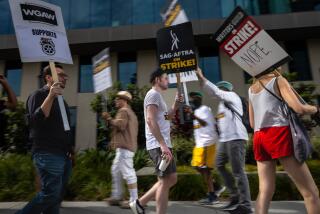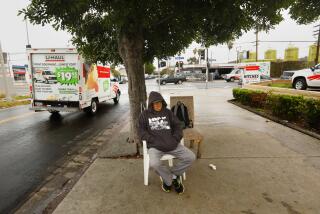Amid shades of Great Recession, day laborers struggle to find work during coronavirus
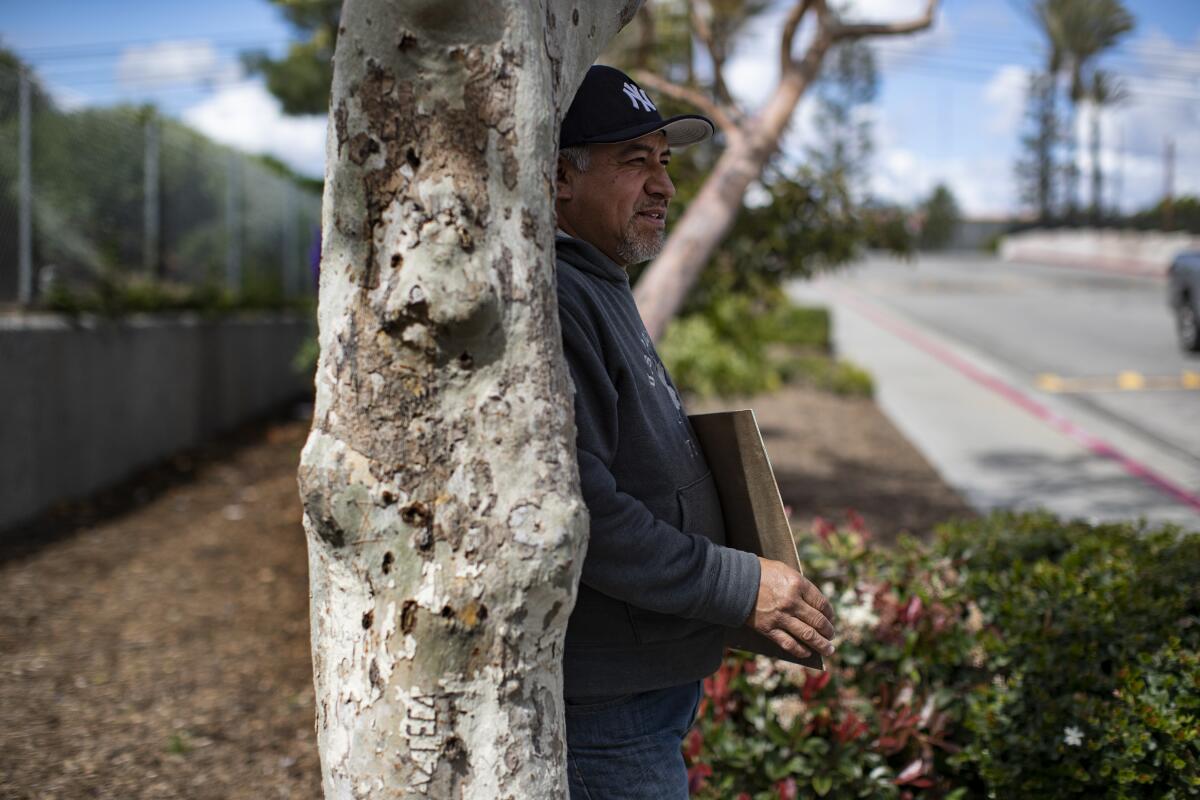
Gabriel Reyes was $600 short of his $1,800 monthly rent and April was around the corner. The day laborer was so desperate for a job he created a cardboard sign that listed his welding skills and cellphone number.
âI figure this way they know what I do since thereâs so many of us out here,â he said.
For a month, the husband and father of three had been soliciting work in the parking lot of a Home Depot in Paramount. In his pockets, he carried little pieces of paper with his name and number to give to potential employers. He couldnât even calculate how many he had passed out.
âIâve only managed to earn $40,â Reyes said. âI donât know if the landlord will give us a break.â
The economic fallout of the novel coronavirus has affected almost every major industry sector of the United States. More than 3.3 million people in the country have filed first-time jobless benefit claims.
But if thereâs a constant of economic crises, itâs that low-wage earners â especially black and Latino workers â tend to take the biggest hits. In the hierarchy of labor in America, you donât get much more tenuous than the humble day laborer, whose livelihood often depends on a barometer of economic optimism.
A vast majority of them are immigrants living in the country illegally or working without visas and work permits. They donât have access to paid sick days, health insurance or unemployment benefits.
Reyes worries about becoming infected. But necessity sends him out to look for work. Most workers donât have money saved up and must pay bills and rent.
âWe canât afford to stay home,â he said. âWe have to come out and look for a job.â
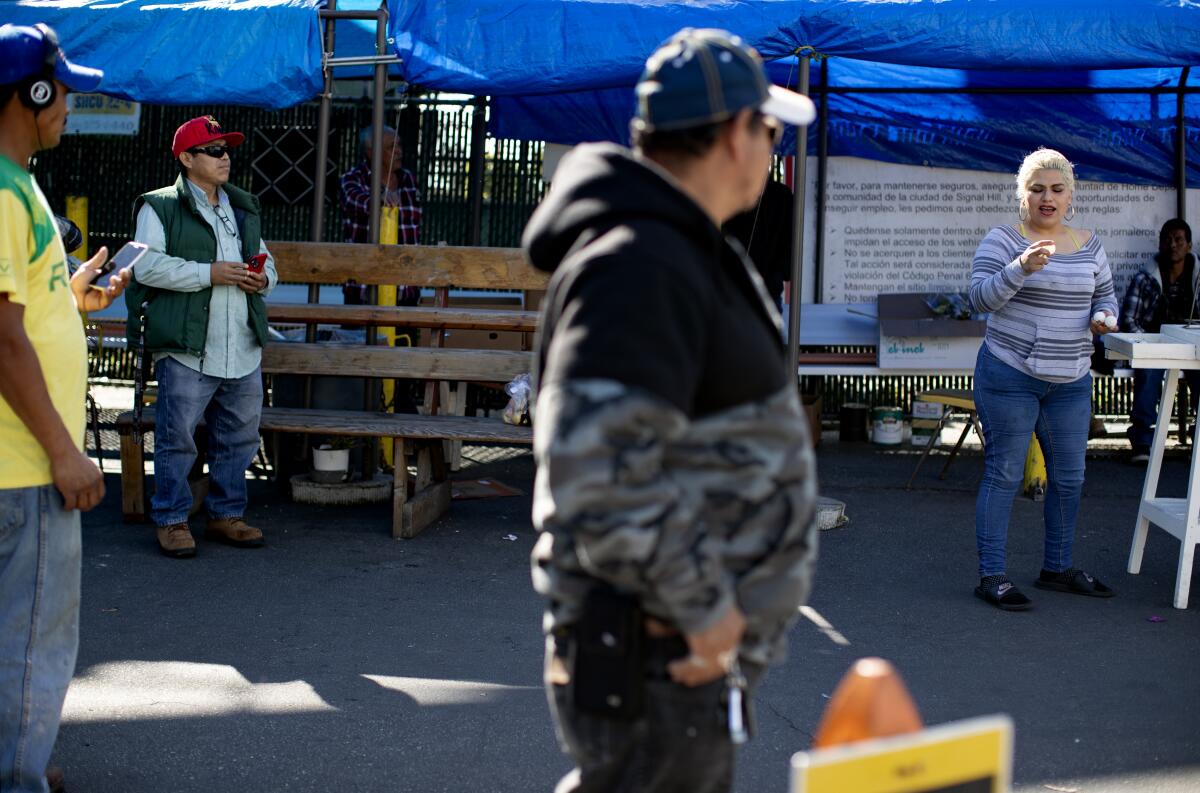
Pablo Alvarado, executive director of the National Day Laborer Organizing Network, said that on any given day nearly 120,000 men and women are working as day laborers or are looking for day-labor jobs at more than 700 hiring sites in at least 22 states. The sites include job centers, home improvement stores and gas stations. At least 125 of those sites are located in California, with 70 of them being day labor work centers; 10 of those centers in Los Angeles County have closed because of coronavirus fears, Alvarado said.
The pandemic has presented an unusual challenge for the nonprofit organization, which spent the last few weeks trying to figure out whether to keep some of its centers open. But with so few jobs and because some of the workers were within the high-risk age group, some of the centers closed.
âWhether we should keep the centers open or not will be determined by the number of jobs. Thereâs still a few jobs left but I just donât know for how long,â Alvarado said.
The organization has begun raising money to launch the Immigrant Worker Safety Net Fund, a donation program that will provide financial support to day laborers, especially those who are 60 or older. Alvarado said the group has managed to raise about $30,000 through small donations from the public.
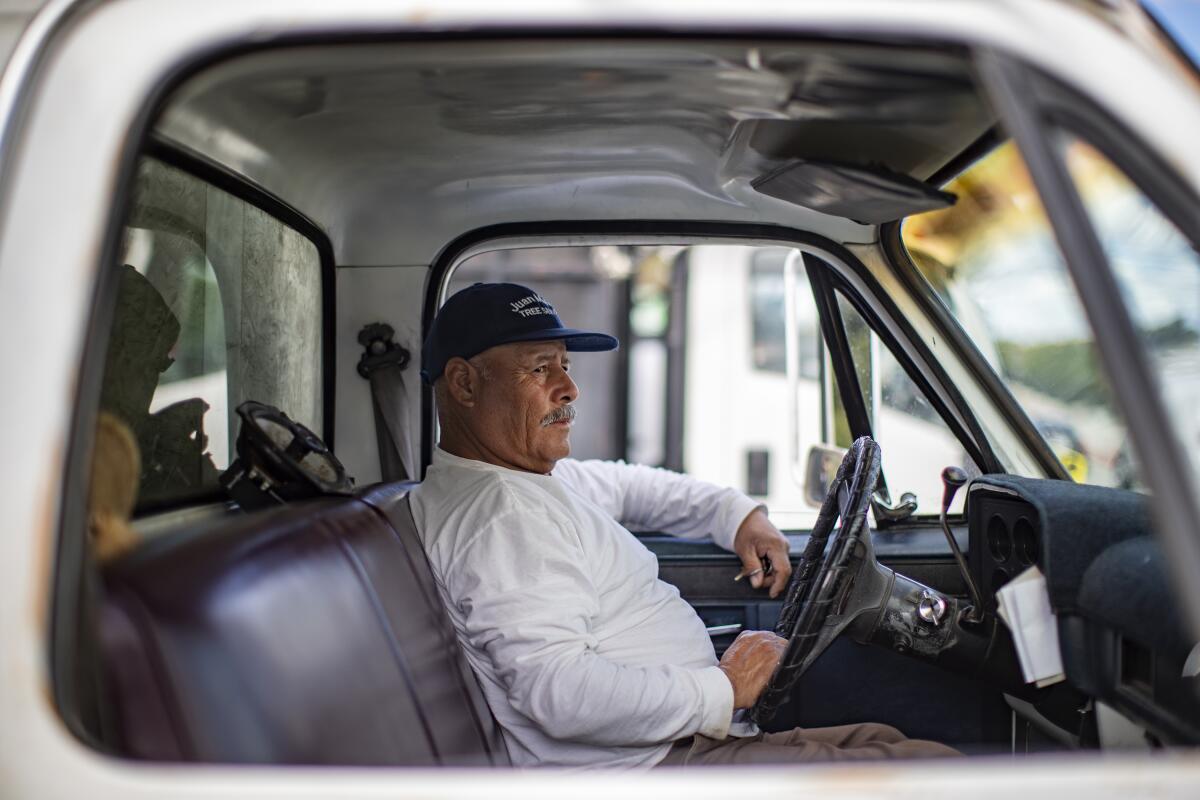
One recent afternoon, more than a dozen men sat on chairs and metal benches next to a green oil pump jack in Signal Hill. They made small talk under blue tarps. Inside a small shack, three women sat together looking for housekeeping jobs. Nearby, 60-year-old Jose Hernandez, the job coordinator, wore an orange vest as he kept an eye out for potential employers. When the outbreak happened, there were still some jobs coming through. There was hope.
Then, the skies opened up.
âThe rain stopped us from working,â he said. âBut thereâs also more jobs after everything grows.â
On this afternoon, seven workers managed to get jobs; six the day before. The coronavirus pandemic caused the cancellation of events many of the workers depend on for jobs. The rains were tough, but there was another challenge: Some people were suddenly nervous about letting other people into their homes.
Since 2011, Hernandez has been contracted by the city to manage the day labor job center located near a Home Depot. But his time at the center dates to 2007, when he began volunteering with a nonprofit organization that ran it. Not long afterward, the U.S. was hit by the Great Recession. People lost their livelihoods and jobs dried up for day laborers.
âThings were not so great then,â Hernandez said.
Competition for jobs was so fierce that laborers would make mad dashes toward potential employers and sometimes got into fistfights. But over the years, Hernandez said, a sense of relative calm descended. He helped organize workers so they wouldnât agree to take jobs below the minimum wage. The fights ebbed. Hernandez implemented a lottery system using a bingo cage and balls to ensure a level of fairness.
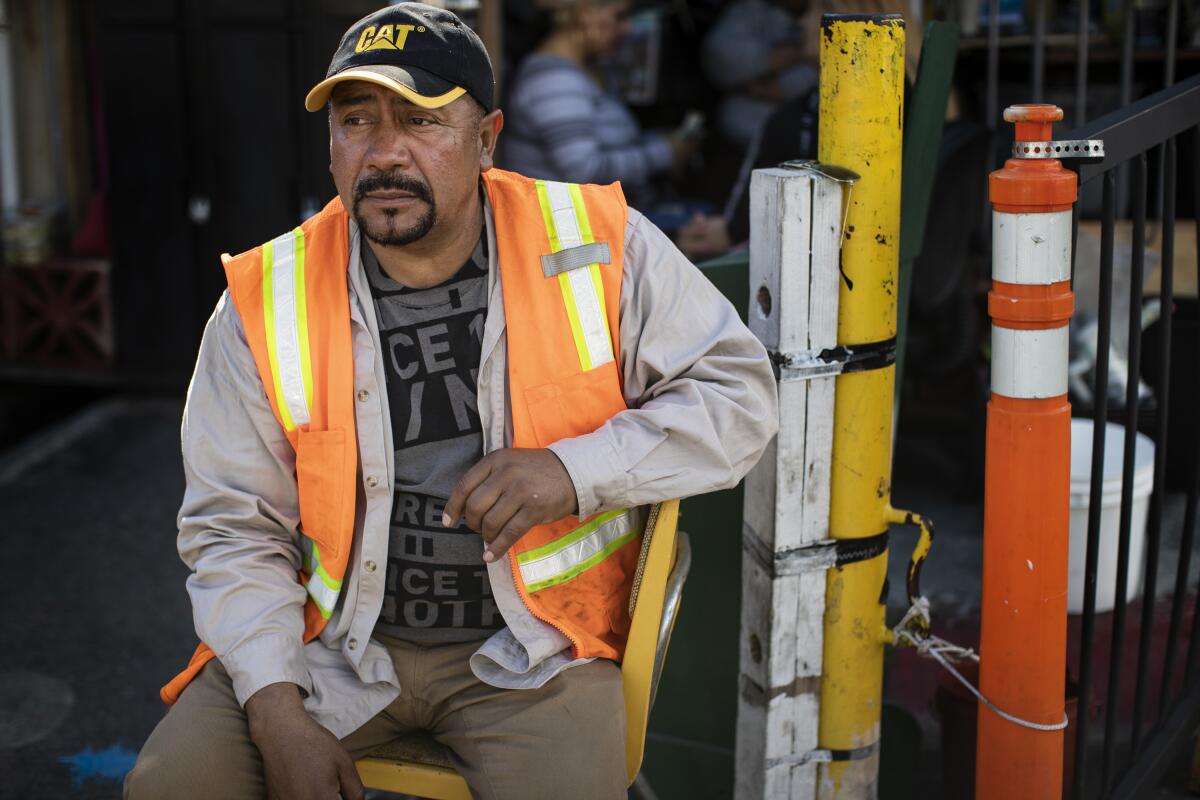
Each morning, day laborers who perform jobs such as demolition, construction or gardening received a ticket with a number. When a job offer came, Hernandez used the bingo cage to roll the balls and randomly select a number. The lucky winner got the job. Workers with special skills such as electricians and plumbers got to toss a coin for jobs.
That was in normal times. These are far from it, and with so few jobs Hernandez has to do things differently.
Every afternoon he removes the bingo balls from the cage and calls the numbers out to check which workers are still at the center.
Hernandez said thereâs no telling what the next few months will be like, but he hopes work will start to pick up again. He said the drop in jobs doesnât compare to the 2008 recession, when he had about 115 men and women looking for work. But only time will tell how bad it could get, he said.
Alvarado said that even during the recession, there were some jobs. But the coronavirus has created a crisis of maximum abruptness â like hitting a wall. People are now contending not only with an economic downturn, but with a pandemic that could make them or their loved ones seriously ill â or kill them. Alvarado said all this makes the day laborerâs future more uncertain than ever.
âWhen youâre a day laborer, you donât know if youâre going to get a job that day. You donât know if youâre going to be hired by an honest or unscrupulous employer, you donât know if white supremacists will show up.â he said. âThis is every day, and now the coronavirus amplifies all these uncertainties to a level weâve never seen before.â
In 2007, Reyes put a $24,000 down payment on a home in Artesia. The moment was blissful. He had a home in the United States and a family. His journey, which began in Hidalgo, Mexico, as a teenager, living in a laundry room for years until he could save money, had eventually paid off.
âIt was a gradual process,â he said. âI was very happy.â
That happiness lasted a year. The recession slammed into the country and the welding work Reyes had performed for a contractor dried up. He lost his job and his home.
âItâs a funny thing; one moment youâre up here in life, then the next day youâre down here,â he said.
As the economy improved so did life for Reyes and his family. He rented a house in Bellflower and began welding for another contractor. As the years moved on from the recession, things were good.
Then the coronavirus came. Once again, the contractor he labored for stopped receiving work. Reyes lost his job. Again.
And so now he holds a sign, hoping someone will notice his plea for work. As he stood near the entrance to the Home Depot, he once again worried about his family. About his home. About being evicted. Even with the state issuing a ban on evictions, Reyes said, no law would stop the bills and rent from piling up.
He said he would pay his landlord whatever amount of money he managed to raise. He hopes he can reason with the landlord.
âI have to be optimistic,â he said. âI try to think positively because if I get depressed, what good will that do me?â
More to Read
Sign up for Essential California
The most important California stories and recommendations in your inbox every morning.
You may occasionally receive promotional content from the Los Angeles Times.
